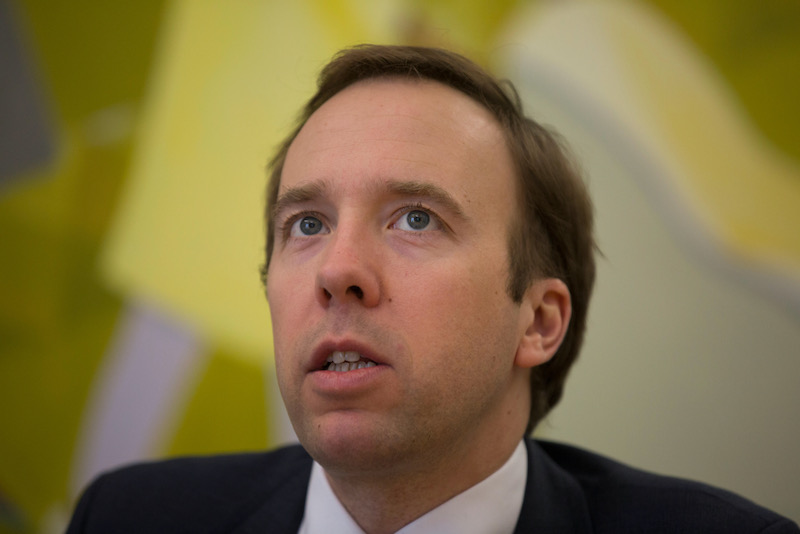A consequence of the Covid lockdowns was that the many demands of parish life were relaxed. An opportunity to reflect a little more deeply on the relationship between formation and mission became available. With the doorbell silent and my diary a desert of vacant pages, I had the space to mull over the potential ways that an adult faith in Christ might mature and, as a consequence, be shared with others.
Last year, I was asked by my bishop, Alan Williams, to head up a new Vicariate for Adult Formation. The emphasis on adult formation was, perhaps, in Church terms an old fashioned branding that appeared to swim against the currents of evangelisation, discipleship and mission. That suspicion is unfounded. After all, it is only possible to communicate the good news of God's grace to our contemporaries in ways that are compelling and joyful if our own formation has some spiritual depth and theological confidence. Without adequate formation, the content of evangelisation risks being thin gruel that provides little nourishment.
The new vicariate’s name recognised the work and commitment of so many priests and people in this area of adult formation especially since Vatican II. Inspired by the Holy Spirit, the foundations have been dug and laid. The heavy lifting is largely complete. This should not be forgotten or disdained. Nevertheless, there remains so much more to be done. As in every age, the task before us remains immense and the cultural challenges multiply almost daily. It would be easy to lose faith in this work. As an antidote to this, a new trust in God’s plan is required in order that all the baptised are equipped to play their part in making the beauty of Christ known to others through the life of His Church.
Alongside this new trust, an attentive listening to each other is essential. When restrictions permitted, I met with groups of two or three people at a time and, if possible, in person. The two questions were: “What should Adult Formation look like?” and “What do we need to do to make it happen?” These conversations had both an intimacy and freedom that can sometimes be lost in a parish council meeting or a hall full of people where only the most articulate are heard.
These conversations never skirted the real challenges around formation and mission which, of course, existed pre-pandemic but now appeared incontrovertible. All agreed that if we were to face them then this would not be achieved by retreating into a defensive Catholic laager. Instead, priests and people needed to regain their confidence in communicating their faith in the crucified and risen Christ in ways that were both serious and joyful. In other words, a formation that allows our faith to grow up.
I had read the literature, I had some sense of the theory but the way forward wasn’t clear to me. My interest was in people’s practical suggestions. We needed to try new, even unconventional approaches and not blunt our energies with another Zoom meeting.
The idea of hope became a recurring theme in these conversations. One woman casually tossed into one discussion: “But the Church is an expert in hope.” It was a drop-the-mic moment. She was right. We are a people “rejoicing in hope; patient in tribulation; continuing instant in prayer” (Romans 12:12). These are the spiritual hallmarks of the Christian life. If we allow them to be rubbed invisible or they are only decipherable by a select few, then, the mission of the Church will be weakened. If we cannot give a reason for our hope and do not celebrate it, then, for most people faith will remain an eccentric curio at the blurry edge of their peripheral vision.
Around the same time as these conversations, a new Directory for Catechesis was published. It is a rich resource but its importance is in affirming the family relationship between adult formation and mission. They are the two intertwining strands of the same DNA. In the past there has been a tendency to regard these as two different spheres of interest and even, at times, as pulling against each other. The Directory for Catechesis aimed to correct this perception and provide a more finessed view of this relationship.
Formation's primary concern is to manifest “the actions of the Holy Spirit, who communicates God’s saving love in Jesus Christ and continues to give himself so that every human being may have the fulness of life.” Here is the distilled essence of the Christian life. If lay men and women are not given the opportunities to understand this, then they will never be grasped by this hope and their discipleship will be permanently hampered.
Without a broad and rich formation in the saving mysteries of Christ, the invitation to join the pilgrimage of hope to the Father's house will be drowned out by the white noise of the dominant culture . But with this formation, not only will the laity take their rightful place on this pilgrimage, but, living by God's grace, they will attract others along the way, especially the weakest and the poorest, the bruised and the hurting. Saint and sinner will travel together to the throne of grace. No one should be left behind.
Over a long gestation period, it became clear that the hope that Christ uniquely offers humanity was to be a leitmotif running through every page of the new Thresholds of Hope website. I unashamedly lifted its name from St Pope John Paul II’s book, Crossing the Threshold of Hope. Not only was the idea of hope present, but the notion of the threshold, the liminal, caught my imagination.
Bishops make ad limina visits to Rome, where they make known the joys and trials their diocese experience and they are encouraged by the Pope in their mission as shepherds. In turn, they are to strengthen the faith of the laity and provide them with ad limina possibilities that deepen their relationship with the Risen Christ. If nothing else, the process of creating this website has convinced me that those possibilities do exist and should be made widely available to our lay people. It took a pandemic to help me realise this and to confirm my hope.
Please visit the Thresholds of Hope website www.thresholdsofhope.co.uk
Fr Martin Boland is Episcopal Vicar for Adult Formation in the Diocese of Brentwood and the Dean of the Brentwood Cathedral.
Photo by Helena Lopes on Unsplash



 Loading ...
Loading ...
What do you think?
You can post as a subscriber user ...
User comments (0)